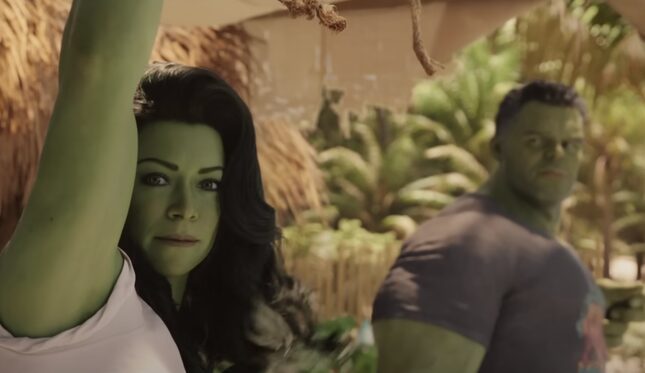‘She-Hulk’ Shows the Anger Triggers That Predispose Women to Be Better Hulks
If I had the ability to Hulk out when harassed, men would never know peace again.
EntertainmentTV

Marvel Studios is back on Disney+ this week with She-Hulk, and male “fans” and incels have responded to the repackaging of the popular, bestially masculine male superhero as you might expect: by review-bombing it on Rotten Tomatoes, not unlike what we saw with Ms. Marvel, the previous Disney+ show centered around a Muslim teenage girl superhero.
Incidents like this, which are pretty anger-inducing, actually prove a central thesis of She-Hulk: The everyday anger triggers and constant barrage of sexism that women have been socialized to cope on a with render us infinitely better prepared than men to become Hulks.
-

-

-

-

-

-

-

-

-

-

-

-

-

-

-

-

-

-

-

-

-

-

-

-

-

-

-

-

-

-

-

-

-

-

-

-

-

-

-

-








































